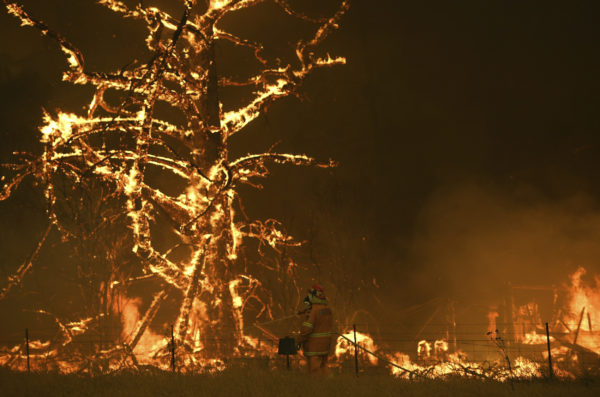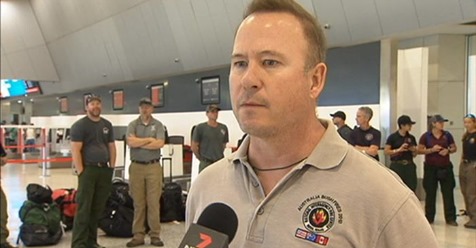
- Details
- By Native News Online Staff
“The loss of life, property and environment are devastating in Australia,” said U.S. Secretary David Bernhardt. “The United States stands with our partners, and we will continue to support Australia in sending our world class personnel to contain these blazes and help protect Australian communities and wildlife.”
 John Szulc is one of seven Bureau of Indian Affairs employees selected to support Australia's bushfires. Photo from Facebook
John Szulc is one of seven Bureau of Indian Affairs employees selected to support Australia's bushfires. Photo from Facebook
The U.S., Australia and New Zealand have been exchanging fire assistance for more than 15 years as the Australian and New Zealand personnel filled critical needs during peak wildfire season in the United States. The last time the U.S sent firefighters to Australia was in 2010.
The team’s work, and success, made a significant contribution to the San Carlos Agency this fire season, and led to discussions about the BIA developing its own Type 3 finance section capable of supporting any BIA regional office or agency, or tribal or interagency partner. Going forward, the section anticipates being able to provide training opportunities to improve fire finance capabilities throughout Indian Country.
More Stories Like This
Native News Weekly (August 25, 2024): D.C. BriefsNational Congress of American Indians Mourns the Passing of Former Executive Director JoAnn K. Chase
Navajo Nation Mourns the Passing of Former Vice President Rex Lee Jim
Deb Haaland Earns Endorsement From Communications Workers of America Local 7076
University Soccer Standout Leads by Example
Help us defend tribal sovereignty.
At Native News Online, our mission is rooted in telling the stories that strengthen sovereignty and uplift Indigenous voices — not just at year’s end, but every single day.
Because of your generosity last year, we were able to keep our reporters on the ground in tribal communities, at national gatherings and in the halls of Congress — covering the issues that matter most to Indian Country: sovereignty, culture, education, health and economic opportunity.
That support sustained us through a tough year in 2025. Now, as we look to the year ahead, we need your help right now to ensure warrior journalism remains strong — reporting that defends tribal sovereignty, amplifies Native truth, and holds power accountable.
 The stakes couldn't be higher. Your support keeps Native voices heard, Native stories told and Native sovereignty defended.
The stakes couldn't be higher. Your support keeps Native voices heard, Native stories told and Native sovereignty defended.
Stand with Warrior Journalism today.
Levi Rickert (Potawatomi), Editor & Publisher

